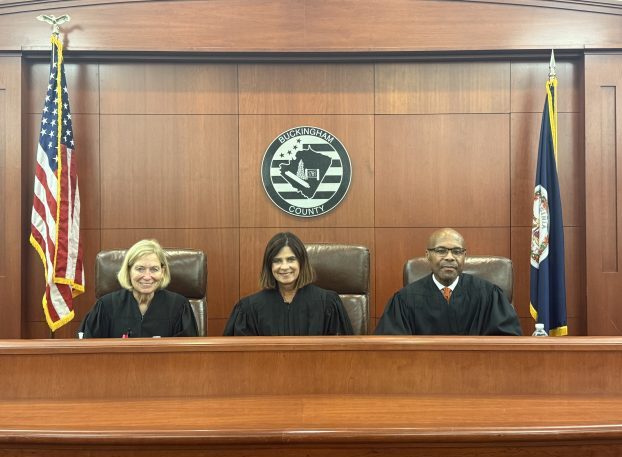Supreme Court to hear ACP case
Published 7:25 am Wednesday, October 23, 2019
The U.S. Supreme Court agreed Oct. 4 to review a federal court ruling that previously halted Atlantic Coast Pipeline (ACP) construction.
The Supreme Court will revisit a decision made by the Fourth Circuit Court of Appeals last December that prevented the U. S. Forest Service from permitting construction of the ACP to cross the Appalachian Trail.
After the Fourth Circuit Court of Appeals made the ruling, Dominion Energy, the largest of four companies backing the ACP project, petitioned the Supreme Court to consider the case.
The ACP is projected to span 600 miles, crossing counties including Prince Edward, Buckingham, and Cumberland.
Officials from the ACP released a statement following the Supreme Court’s decision to revisit the case.
“The Supreme Court’s acceptance of our petition is a very encouraging sign and provides a clear path forward to resolve this important issue,” the release cited. “The law and the facts are on our side, and we’re supported by a broad coalition of stakeholders. The U.S. Solicitor General, 16 state Attorneys General and more than a dozen industry and labor organizations all agree that the U.S. Forest Service has the authority to approve our Appalachian Trail crossing.”
ACP’s release went on to say that more than 50 other pipelines cross underneath the Appalachian Trail without disturbing public use. It also cited that the ACP will be installed more than 600 feet below the surface of the trail and more than half a mile from each side of the trail in order to avoid any impacts.
The release highlighted that the ACP will make its case in front of the Supreme Court in early 2020 and hope to hear a final ruling by next June.
“We are confident in our arguments, and those of the Solicitor General, and are hopeful the Supreme Court will overturn the Fourth Circuit’s decision and uphold the longstanding precedent allowing pipeline crossings of the Appalachian Trail,” ACP’s release stated.
Officials continued, “The Atlantic Coast Pipeline is more important now than ever. The economic vitality, environmental health and energy security of our region depend on it. Communities across Hampton Roads, Virginia and eastern North Carolina are experiencing chronic shortages of natural gas. The region urgently needs new infrastructure to support the U.S. military, manufacturing, home heating and cleaner electricity as we move away from coal. We remain committed to this project and are confident it will be completed.”
While representatives from the ACP see the Supreme Court’s decision as beneficial, activist groups opposing the pipeline are displeased with the possible continuation of construction.
One such group, Friends of Buckingham, see the revisitation as a chance for Supreme Court rulers to see its side of the story.
The group describes its mission statement as “To preserve the natural resources and cultural heritage of Buckingham County.”
“The Supreme Court will now hear just how unlawful the Atlantic Coast Pipeline is,” said Friends of Buckingham President Chad Oba. “This permit is just one of seven permits that have been vacated or suspended for this pipeline.”
Oba stated that the group saw Dominion and Duke Energy’s petition as a “last appeal for a pipeline project that is clearly in jeopardy.” She stated that she believed the companies should not be able to restart construction until all of the project’s permitting issues are resolved.
“What Dominion and Duke want to do is unprecedented,” said Oba. “No existing natural gas pipeline crosses the Appalachian Trail on national forest lands pursuant to an authorization by the Forest Service.”
“We call this a case of David and Goliath,” said Friends of Buckingham Secretary Heidi Berthoud. “We are deeply concerned about the future for all of us.”
The Oct. 4 ACP release added that representatives are hopeful that a resolution in favor of the ACP would allow full construction to resume next summer, with a project completion date of late 2021.





